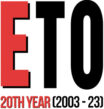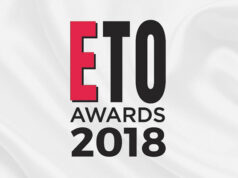On July the 14th Ofcom – the Office of Communications which regulates broadcast media in the UK – ruled on what does and what does not represent ‘television-like’ VOD services. Importantly, pornographic content has been deemed within the description, forcing ATVOD (Authority for TeleVision On Demand) rules upon a number of British adult firms.
Playboy TV had challenged the Communications Act 2003’s March 18th 2010 amendment (Part 4A) which was extended to regulate VOD services, such as iPlayer and 4OD. However, their assertion that because of the type of R18-level content they showed they could hardly be called ‘television-like’ was rejected by the review and both the firm’s VOD sites will be required to register with ATVOD – and pay two registration fees. The same fees which the BBC and Channel 4 are expected to pay.
In the report, ATVOD determined that the Playboy TV websites were on-demand programme services. It considered that: “Although the content may be more explicit than is currently permitted on linear TV services in the UK, the form and content is nevertheless comparable to adult programmes broadcast on linear UK TV services and is essentially the same as adult programmes which are frequently broadcast on linear TV channels in other EU jurisdictions.”
Playboy TV had said that as its content was prohibited for television broadcast under the Ofcom Broadcasting Code, it was not comparable to material found on television. They also maintained that the websites did not compete with television services and that users would not expect the Internet-only services to be regulated. Ofcom dismissed their appeals, ruling that the Playboy websites were on-demand programme services.
When deciding whether a service is television-like, ATVOD and Ofcom state they consider a range of factors, including the content of the clips, their organisation and description, duration and production values.
Commenting on the decision, ATVOD Chair Ruth Evans explained: “The idea that a video on demand service should escape regulation on the grounds that its content was too extreme would make a mockery of the whole purpose of regulation in this area which, in large part, is designed to protect children from exposure to video content which poses a risk of serious harm.”
Following the decision, managed pornographic video websites will need to register with ATVOD unless they can be structured in a way that avoids them being classed as ‘television-like’. Once registered, the websites will also have to comply with the ATVOD code, particularly the requirement that: “If an on-demand programme service contains material which might seriously impair the physical, mental or moral development of persons under the age of eighteen, the material must be made available in a manner which secures that such persons will not normally see or hear it.”
In its report ATVOD made it clear that in order to comply with its code, websites will be expected to introduce a content access control system, which must include effective age verification and registration procedures.
Others affected by the ATVOD and Ofcom ruling are the BBC’s Top Gear YouTube channel, where clips average just eight minutes long, and some newspapers which run TV-quality video content on their websites. However the video will fall outside AITVOD’s remit if it is simply running alongside a text news story. 11 of the determinations made by ATVOD – including the BBC Top Gear YouTube channel and four newspaper case decisions – have been appealed to Ofcom.



![20 years of ETO: Harmony, Charing Cross Road, London [reprinted from issue 1, July 2003]](https://www.erotictradeonly.com/wp-content/uploads/2023/08/NEWS_20YEARS_HARMONY_ISSUE1-238x178.jpg)











